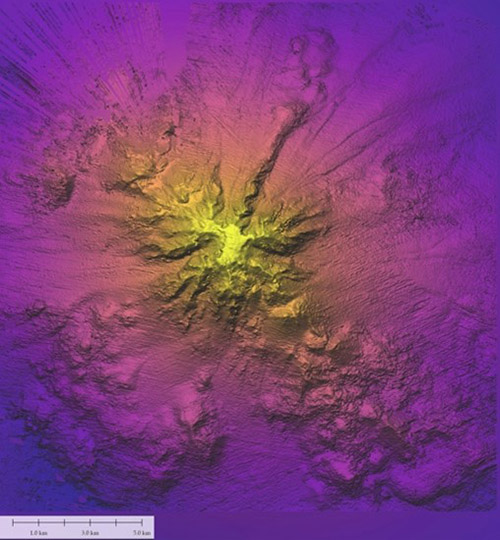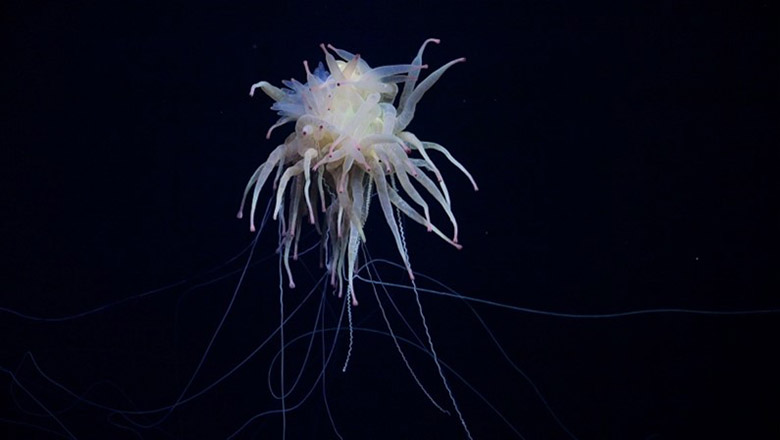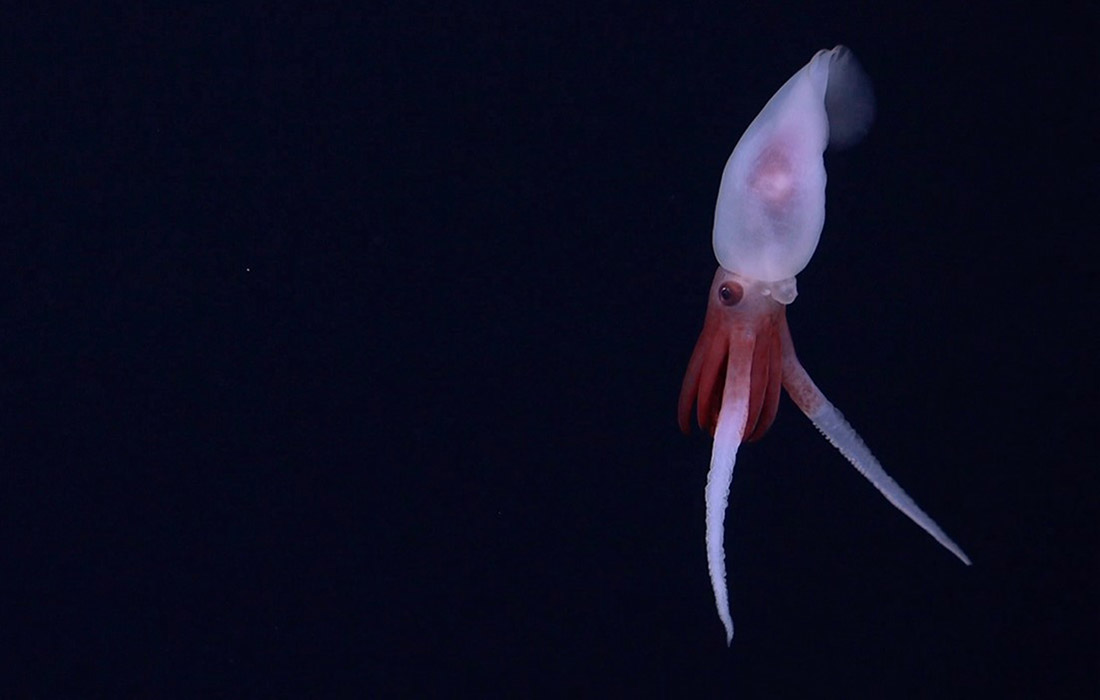Written by: Carlyn Scott, Communications Manager
Thousands of feet below the ocean surface lies a world of unimagined wonder — translucent squids, massive coral stretching out like branches of a tree, and colonial organisms called siphonophores with frilly, spaghetti-like appendages.

IMAGE ABOVE: The seamount discovered on the latest expedition co-led by Virmani. The seamount covers an area of about 70 sq km and rises about 2 miles above the surrounding seafloor. Credit: Schmidt Ocean Institute.
Scientists aboard the Schmidt Ocean Institute’s R/V Falkor (too) recently identified these organisms on a newly discovered seamount that supports an immense array of biodiversity. Part of the Nazca Ridge, an underwater chain of mountains formed by a shifting boundary plate, the two-mile-high seamount lies 700 nautical miles off the coast of Chile.
The discovery has made international headlines.
Jyotika Virmani, who earned her PhD from the USF College of Marine Science in 2005, is the executive director of the Schmidt Ocean Institute and served as co-chief scientist for the recent expedition, a continuation of their goal to map the seafloor in the region.
At the surface, this area is part of a nutrient-rich upwelling zone, supporting a large range of species. Below, scientists aim to determine the influence of the seamounts, including what ecosystems they support.
“This was the first mission led by the staff and crew of Schmidt Ocean Institute, with wonderful colleagues from a number of organizations on board, and I was privileged to be among the scientists joining the research vessel remotely,” Virmani said in an article published by the Schmidt Ocean Institute.
“Only 26 percent of the seafloor has been mapped to this high resolution and each expedition on Falkor (too) brings into focus a little more of the unknown seabed and life on our home planet.”

IMAGE ABOVE: The rare siphonophore Bathyphysa conifera, often nicknamed the "flying spaghetti monster," was documented during the expedition. Credit: ROV SuBastian / Schmidt Ocean Institute.
Virmani has had an illustrious career post-graduation. Since earning her PhD, she served as associate director of the Florida Institute of Oceanography, worked on numerous XRPIZE initiatives, and was recently recognized on a Forbes list celebrating some of the nation’s most impactful women leaders. And those are just some of the highlights.
Her former graduate advisor, Distinguished University Professor Bob Weisberg, is proud of her career accomplishments.
“It’s wonderful! I take great joy in all my student’s successes, and she has had a lot of success in her career,” said Weisberg. “She was an outstanding student and always a pleasure to work with, so you can see why she has accomplished so much.”
